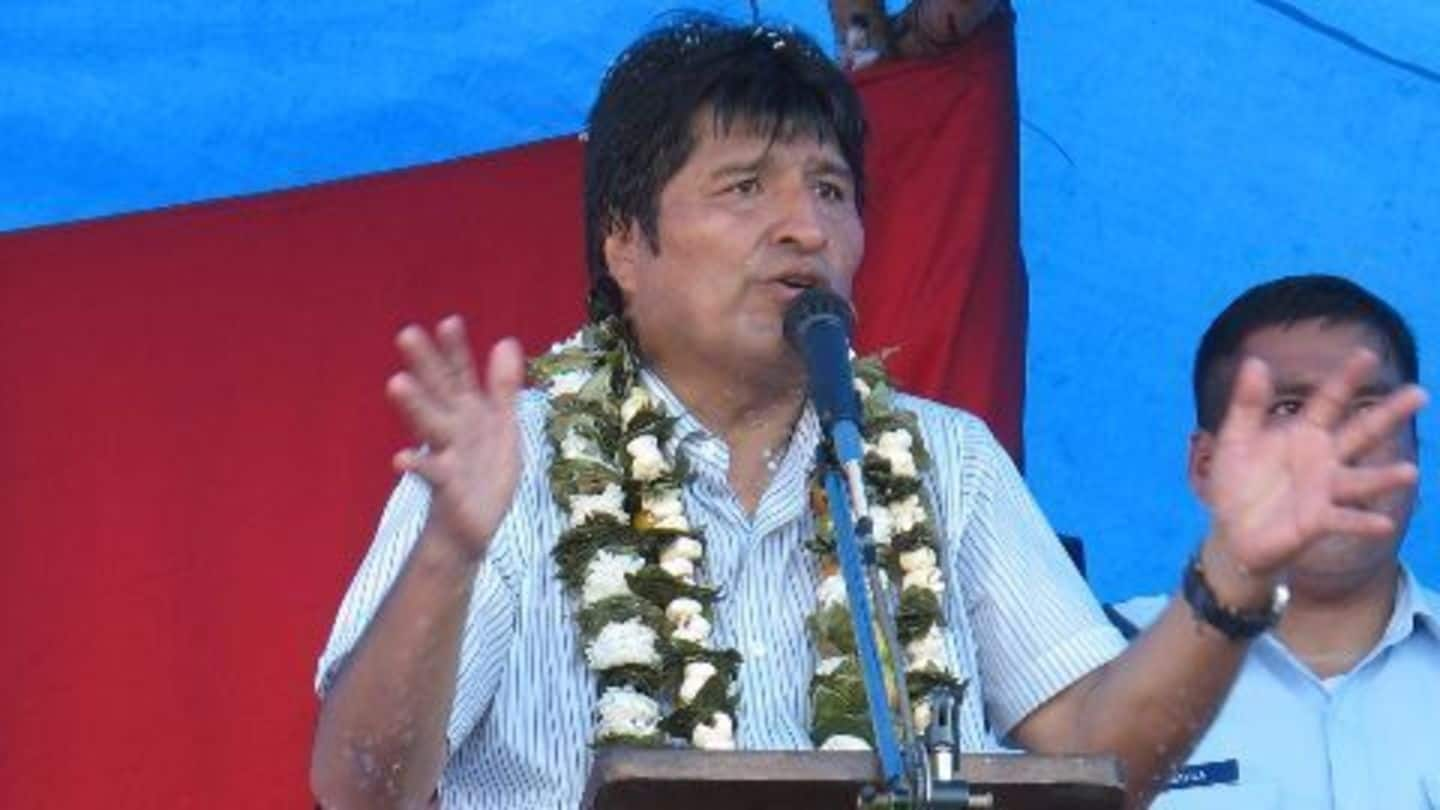
Bolivia: Evo Morales loses bid for fourth presidential term
What's the story
Bolivian President Evo Morales lost his bid for a fourth presidential term after his bid to amend the constitution was rejected in a referendum. The Bolivian Election Commission declared that more than 51% votes were against his re-election. Experts assess that allegations of corruption and cronyism against his party were responsible for the loss of voter confidence. His current presidential term ends in 2019.
Introduction
Who is Evo Morales?
Evo Morales is a politician and an activist who is currently the 80th President of Bolivia. He was the first native to become the President of Bolivia in 2006. He belonged to an Aymara family of farmers and served in the military before starting his political career. He is the President of the left-wing socialist Bolivian political party, Movement for Socialism (MAS).
1984-2006
Political career before Presidential term
In 1985, Evo Morales became the General Secretary of the Cocalero Union which strived to preserve the coca plantations, coca growers and the cocalero culture. From 1996 to 2006, he was the Chairman of the Committee of Six Federations of the Tropics of Cochabamba. Movement for Socialism (MAS-IPSP) was formed to protect the coca-growers in 1998, under his leadership.
2005
2005 Bolivian Presidential elections
The then-President Carlos Mesa was forced to resign as riots and protests by coca-growers' severely disrupted law and order. Eduardo Rodriguez was made the President of the interim government, before arranging general elections in Bolivia. Evo was nominated for the 2005 general elections from the MAS party, and he became the President of Bolivia with 53% of the votes.
Information
New law backs Morales’ re-election
The opposition protested against the re-election of Morales for the third time as it was against the Bolivian Constitution. However, the Bolivian judiciary ruled that the constitutional amendment during Evo's first-term allowed his re-election.
2006-2016
Bolivia under his presidency
During his first term as President, Evo brought about socio-economic reforms and increased taxes for Bolivia's rich, a move opposed by many industrialists in Bolivia. He was re-elected in 2009 despite several strikes and disturbances during the general elections. During the 2014 elections, there was tension as MAS activists protested against some government reforms. However, he successfully gained 60% of the votes.